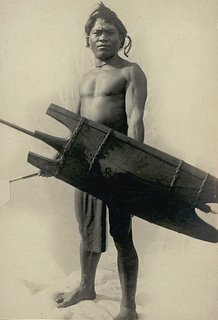Supreme Court sits 32 more party list solons
SC sits 32 more
party list solons
Says 20% mandated representation
by Charter must be followed
BY EVANGELINE DE VERA
THE Supreme Court yesterday allowed 32 more party list representatives to sit in the House of Representatives to comply with a constitutional requirement that 20 percent of House seats should be allotted to party list-groups.
In a 35-page decision penned by Associate Justice Antonio Carpio, the Court en banc struck down for being unconstitutional the 2 percent threshold in the distribution of additional seats in relation to the distribution of additional party list seats under R.A. 7941 (Party List System Law).The decision is immediately executory.
The 2 percent threshold presents an unwarranted obstacle to the full implementation of party list representation and prevents the attainment of "the broadest possible representation of party, sectoral or group interests in the House of Representatives," the SC said.
The high court, in its ruling, set the guidelines for parties running for the remaining party list slots in Congress.
The majority decision expands to 55 seats the number of allocated party list seats. At present, only 23 seats are filled from 17 winning party list groups.
The 17 qualified party list candidates, or the "two-percenters," are the party list candidates that are "entitled to one seat each," or a guaranteed seat in the first round of seat allocation.
The high court partially granted the petition filed by the Barangay Association for National Advancement and Transparency’s (BANAT) and set aside the ruling of the Commission on Elections en banc, sitting as the National Board of Canvassers, which was promulgated on Aug. 3, 2007.
The assailed Comelec resolution approved the recommendation of Alioden D. Dalaig, head of the National Board of Canvassers (NBC) Legal Group, to deny the petition of BANAT for being moot. BANAT filed before the Comelec en banc a petition to implement the constitutional provision.
Under the ruling, the SC decided to continue its earlier ruling disallowing major political parties from participating in the party list elections, directly or indirectly.
While the SC left the computation to the Comelec, the Court ruling entitles at least four parties which already have two seats to an additional seat, namely, Bayan Muna, Cibac, Gabriela and Apec.
Those who benefited from the SC ruling were party list groups FPJPM, Uni-Mad, ABS, Kakusa, Kabataan, Aba-ako, Alif, Senior Citizens, AT, Veterans’ Federation of the Philippines, Anad, BANAT, Ang Kasangga, Bantay, Abakada, 1-Utak and the TUCP.
Others that would have additional one seat from their lone representation at this time are A-Teacher, Alagad, Coop-Natcco, Butil, Batas, ARC, Anakpawis, Abono, Anak Mindanao, Agap and An Waray.
Under the new formula, the SC said that the percentage of votes garnered by each party list candidate is arrived at by dividing the number of votes garnered by each party by 15,950,900, the total number of votes cast for party list candidates.
The SC said there are two steps in the second round of seat allocation. First, the percentage is multiplied by the remaining available seats, 38, which is the difference between the 55 maximum seats reserved under the party list system and the 17 guaranteed seats of the "two-percenters."
"The whole integer of the product of the percentage and of the remaining available seats corresponds to a party’s share in the remaining available seats. Second, we assign one party list seat to each of the parties next in rank until all available seats are completely distributed. We distributed all of the remaining 38 seats in the second round of seat allocation," the SC said.
"Finally, we apply the three-seat cap to determine the number of seats each qualified party list candidate is entitled," the SC added.
Applying the procedure of seat allocation, there are 55 party list representatives from the 36 winning party list organizations, the Court ruled.
The SC, on the other hand, affirmed its previous ruling in Veterans Federation Party v. Comelec disallowing major political parties from participating in party list elections.
However, because the formula in Veterans has flaws in its mathematical interpretation of the term "proportional representation," the SC felt compelled to revisit the formula for the allocation of additional seats to party list organizations.
The Court noted that since the 14th Congress of the Philippines has 220 district representatives, there should be 55 seats available to party list representatives to comply with the constitutional requirement of 20 percent of the total number of House membership (district seats plus party list seats).
Under the party list law, and the deliberations of the Constitutional Commission, major political parties may coalesce with certain sectors to be able to join in party list elections.
"However, by a vote of 8-7, the Court decided to continue the ruling in Veterans disallowing major political parties from participating in the party list elections, directly or indirectly.
Those who voted to continue disallowing major political parties from the party list elections joined Chief Justice Reynato S. Puno in his separate opinion.
"On the formula to allocate party list seats, the Court was unanimous in concurring with this ponencia," the Court said. MALAYA 04/21/2009
Labels: Congress, Party-Lists System, Supreme Court





 Deviant Art
Deviant Art